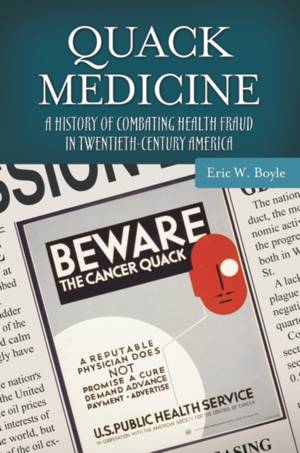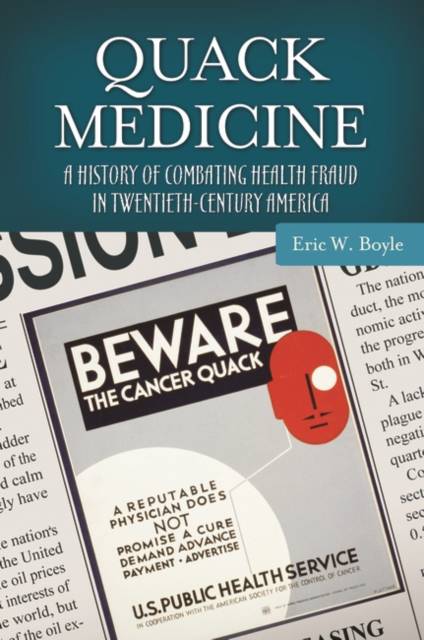
En raison d'une grêve chez bpost, votre commande pourrait être retardée. Vous avez besoin d’un livre rapidement ? Nos magasins vous accueillent à bras ouverts !
- Retrait gratuit dans votre magasin Club
- 7.000.000 titres dans notre catalogue
- Payer en toute sécurité
- Toujours un magasin près de chez vous
En raison de la grêve chez bpost, votre commande pourrait être retardée. Vous avez besoin d’un livre rapidement ? Nos magasins vous accueillent à bras ouverts !
- Retrait gratuit dans votre magasin Club
- 7.000.0000 titres dans notre catalogue
- Payer en toute sécurité
- Toujours un magasin près de chez vous
110,45 €
+ 220 points
Description
This timely volume illustrates how and why the fight against quackery in modern America has largely failed, laying the blame on an unlikely confluence of scientific advances, regulatory reforms, changes in the medical profession, and the politics of consumption.
Throughout the 20th century, anti-quackery crusaders investigated, exposed, and attempted to regulate allegedly fraudulent therapeutic approaches to health and healing under the banner of consumer protection and a commitment to medical science. Quack Medicine: A History of Combating Health Fraud in Twentieth-Century America reveals how efforts to establish an exact border between quackery and legitimate therapeutic practices and medications have largely failed, and details the reasons for this failure. Digging beneath the surface, the book uncovers the history of allegedly fraudulent therapies including pain medications, obesity and asthma cures, gastrointestinal remedies, virility treatments, and panaceas for diseases such as arthritis, asthma, diabetes, and HIV/AIDS. It shows how efforts to combat alleged medical quackery have been connected to broader debates among medical professionals, scientists, legislators, businesses, and consumers, and it exposes the competing professional, economic, and political priorities that have encouraged the drawing of arbitrary, vaguely defined boundaries between good medicine and "quack medicine."Spécifications
Parties prenantes
- Auteur(s) :
- Editeur:
Contenu
- Nombre de pages :
- 264
- Langue:
- Anglais
- Collection :
Caractéristiques
- EAN:
- 9780313385674
- Date de parution :
- 31-01-13
- Format:
- Livre relié
- Format numérique:
- Genaaid
- Dimensions :
- 160 mm x 236 mm
- Poids :
- 589 g

Les avis
Nous publions uniquement les avis qui respectent les conditions requises. Consultez nos conditions pour les avis.






